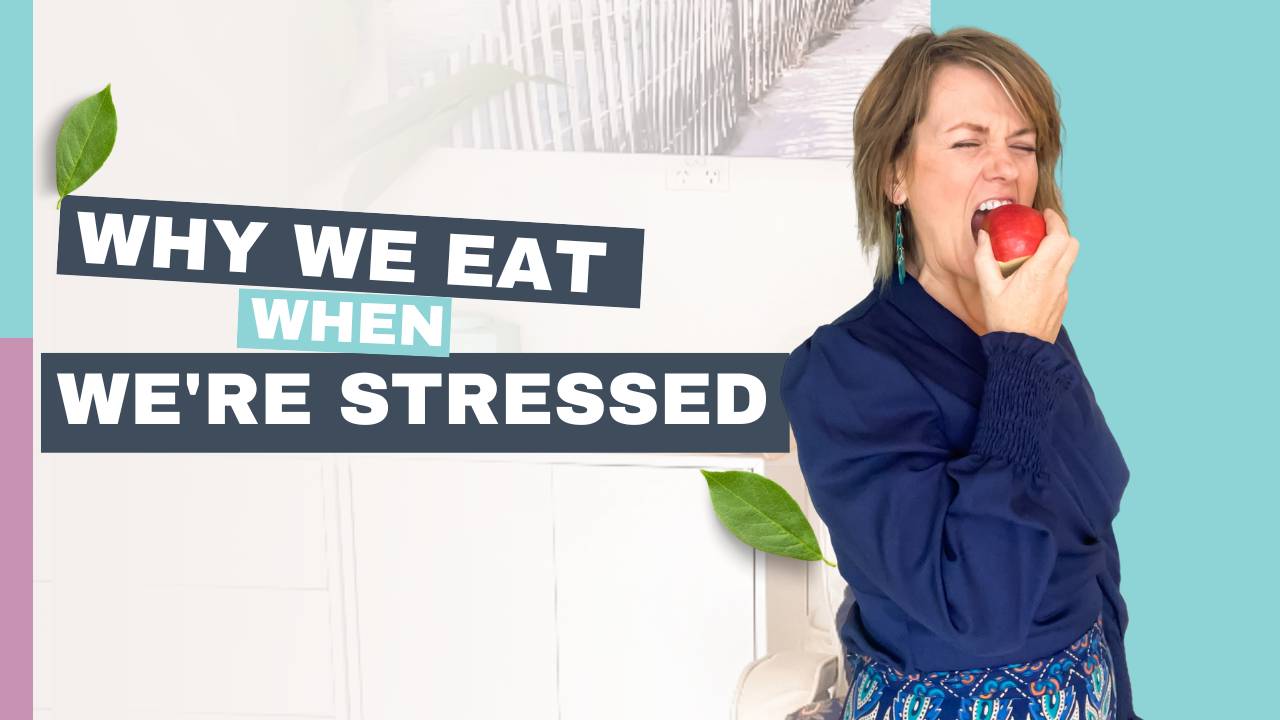Stress Eating Demystified: Why we Eat When Stressed

We've all been there – a tough day at work, a never-ending to-do list, or just life's unpredictability in general. Stress sneaks up on us, and suddenly we find ourselves reaching for that bag of chips or diving into a tub of ice cream.
But have you ever wondered why stress and eating seem to go hand in hand? Let's dive into the science behind this intriguing connection and discover how to break the cycle.
1. Nervous System Balance: The Dopamine Dance
Stress may have us in its grip, but our bodies have a clever way of fighting back. When we eat, our brain releases dopamine, a "feel-good" neurotransmitter. This release of dopamine helps regulate cortisol levels, which are responsible for those gnawing feelings of stress. So, in a way, that chocolate bar might be your brain's way of saying, "Hey, let's level the playing field a bit!"
2. Distraction: Shifting Focus, Shifting Moods
Imagine you're in the middle of a high-stress situation – your heart's racing, your mind's in overdrive. Suddenly, a plate of warm cookies appears in front of you. It's not magic; it's science! Eating can serve as a distraction, steering your focus away from the overwhelming stress and onto the simple pleasure of taste. Your mood shifts, your emotional state follows suit, and you find a moment of solace in that cookie's crunch.
3. Blood Sugar Swings: Rollercoaster Ride of Cravings
Stress isn't just a mental phenomenon; it can play havoc with our bodies too. When stress hits, our blood sugar levels can go on a rollercoaster ride – up and down, triggering hunger and intense cravings. Suddenly, that double cheeseburger seems like the only answer. These fluctuations can lead to overeating as our body tries to find stability amidst the turmoil.
Overeating can be an effect, not a cause. So, how do we tackle the real issue? Instead of obsessing over the aftermath of stress eating, let's take a step back and focus on the root cause – the stress itself. Addressing the source of stress is like closing the door that tempts us to seek solace in snacks.
The Caveat
While many of us turn to food when stressed, it's worth noting that stress can have a suppressing impact on digestion, leading to a lack of appetite in some individuals.
The body's "fight or flight" response can divert blood away from the digestive system, making some people feel nauseous or uneasy at the thought of eating. This phenomenon is a reminder that stress affects each of us uniquely, and understanding our own body's responses is key to managing it effectively.
Grab your Free Training: What is Mindful Eating and How can it Help me?
Remember, understanding why we turn to food during stressful times is the first step in breaking the cycle. So, let's all take a collective breath, pause before reaching for that snack, and remind ourselves that true comfort comes from nurturing our well-being, not just our taste buds.
Stay tuned for more updates, tips, and strategies to conquer stress eating – the deliciously mindful way!
Enjoy xx
Larissa
Want to Stress Less NOW? Check out the Radiant Relaxation Library HERE. Learn short yet powerful practices to up - level your level of calm and down level the chaos in your mind and body.
Enjoying our Content? Turn Inspiration into Action!
Be the first to grab new Podcast Episodes, Healing Practices and ignite your Motivation, all delivered to your inbox.
Hang together forever or opt out anytime









